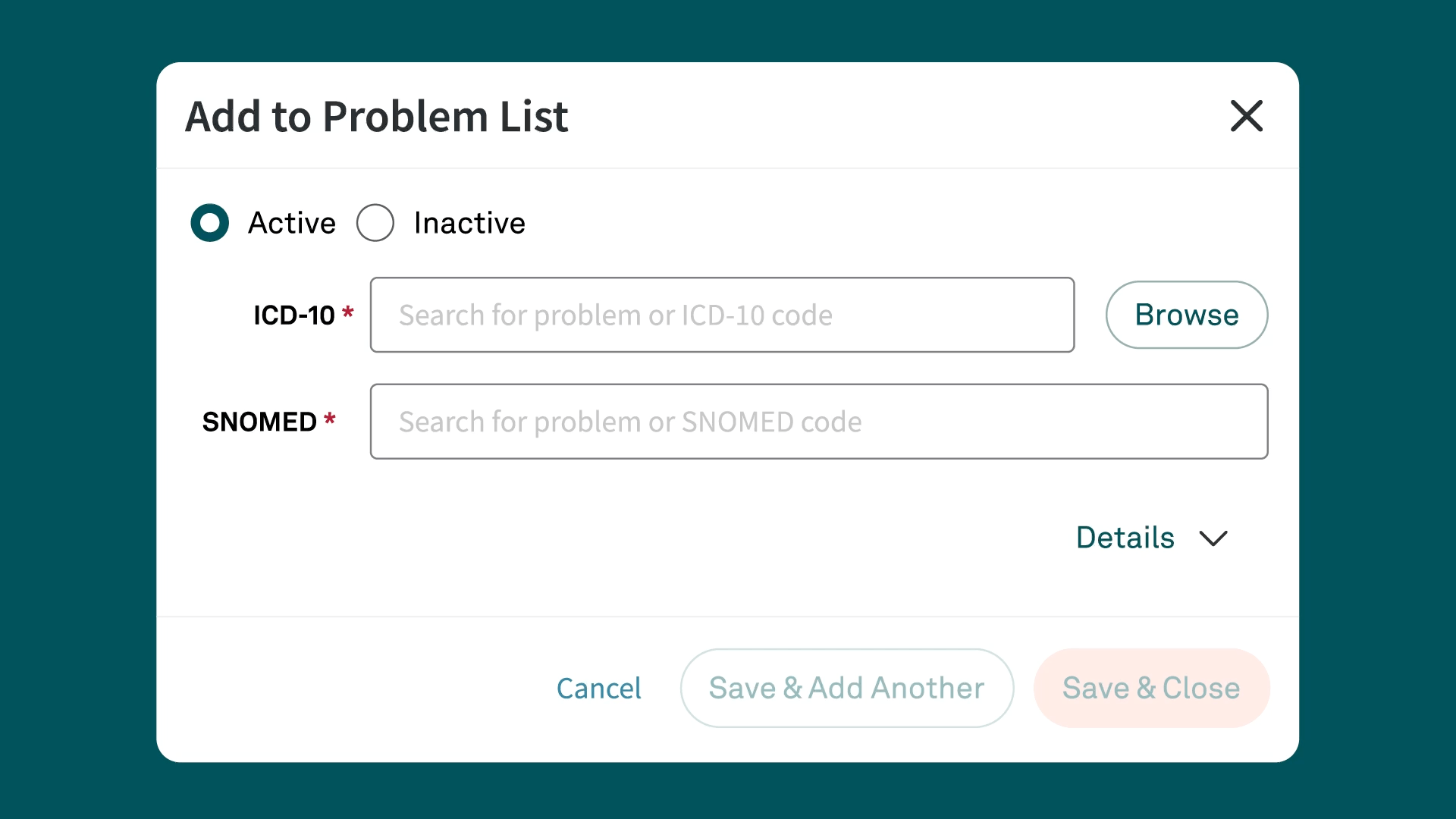ICD-10 Code R79.9
Abnormal finding of blood chemistry, unspecified
What is the code R79.9?
ICD-10-CM code R79.9 refers to "abnormal finding of blood chemistry, unspecified." Code R79.9 is an International Classification of Diseases, 10th revision, Clinical Modification (ICD-10-CM) code that healthcare providers and medical billers use when blood test results reveal abnormalities that do not fit into more specific categories. It serves as a catch-all for irregular blood chemistry findings that require further investigation or do not have a definitive diagnosis.
Download your free resource now
Access it instantly — just complete the form

Detailed description of R79.9
Assign the ICD-10 code R79.9 to cases where abnormal findings in blood chemistry tests are present but lack specificity. Providers and medical billers often use code R79.9 when initial test results are inconclusive, necessitating further diagnostic procedures to pinpoint the underlying issue. This code is particularly useful for documenting cases where the abnormality is significant but not immediately classifiable.
Symptoms commonly associated with R79.9
R79.9 itself does not denote specific symptoms but rather abnormal laboratory findings. However, the underlying conditions that lead to abnormal blood chemistry can present various symptoms, depending on the specific abnormality. Common symptoms that might prompt blood tests leading to an R79.9 code include:
- Fatigue
- Unexplained weight loss or gain
- Persistent headaches
- Dizziness or lightheadedness
- Nausea or vomiting
- Muscle cramps or spasms
- Unusual bleeding or bruising
These symptoms can arise from various conditions such as kidney dysfunction, liver disease, metabolic disorders, or electrolyte imbalances.
Related and similar ICD-10 codes
Several ICD-10 codes are related to R79.9, each specifying different types of abnormal blood chemistry findings. These include:
These codes provide more specific categories for different types of blood chemistry abnormalities, whereas R79.9 is used when the provider has not specified the abnormality.
Appropriate usage and guidelines for R79.9
Use R79.9 when blood tests reveal abnormalities that cannot be classified under more specific codes. It is important to use this code accurately to ensure proper documentation and subsequent follow-up. Key guidelines include:
- Initial findings: Use R79.9 when the initial blood test results are abnormal but not specific enough for a definitive diagnosis.
- Further testing: This code often necessitates additional diagnostic testing to determine the precise cause of the abnormality.
- Documentation: Ensure thorough documentation of the abnormal findings and any symptoms or clinical indications that led to the blood test. (Note that while this is best practice, it is not necessary for code assignment.)
Common pitfalls in coding with R79.9
Several common pitfalls can occur when using the R79.9 code:
- Overuse: Over-reliance on R79.9 can occur when more specific codes could be used. Always check if a more precise code is available.
- Inadequate documentation: Insufficient documentation can lead to coding errors and issues with claims processing.
- Overlooking related conditions: If the abnormal blood chemistry is secondary to other conditions, ensure that these primary conditions are coded appropriately. If the primary condition causing the abnormal blood chemistry has been identified, assign the code for the underlying condition instead of R79.9.
Key resources for R79.9 coding
Healthcare professionals can use several resources to ensure accurate coding with R79.9:
- ICD-10-CM Official Guidelines for Coding and Reporting: These guidelines provide comprehensive instructions for using ICD-10 codes.
- Centers for Medicare & Medicaid Services (CMS): CMS offers resources and updates on coding practices, including webinars, manuals, and bulletins.
- Professional coding organizations: Organizations like the American Health Information Management Association (AHIMA) and the American Academy of Professional Coders (AAPC) offer educational resources, certifications, and support for medical coders.
- Coding reference books and software: Reference materials such as the ICD-10-CM codebook can support medical coders and providers.
These resources provide detailed instructions and updates on coding standards and practices.
Conclusion
The ICD-10 code R79.9 is a valuable tool for documenting unspecified abnormal findings in blood chemistry. While it serves as a placeholder for initial inconclusive results, it underscores the necessity for further diagnostic work to pinpoint the exact issue. Accurately using this code, coupled with thorough documentation and follow-up, ensures effective patient care and proper billing practices. Healthcare providers should leverage available resources to stay updated on best practices for coding and reporting.
Simplify ICD-10 code documentation with Tebra
Tebra’s EHR+ gives you quick searches and Systematized Nomenclature of Medicine (SNOMED) field names for efficient code documentation. Plus, Tebra automatically saves ICD-10 to SNOMED mapping for future searches, streamlining your workflow.

Discover how Tebra helps providers effortlessly document health-related issues and conditions in this detailed post.
Similar Codes
Stay Ahead with Expert Healthcare & Billing Insights
Get the latest industry updates, financial tips, and expert strategies — delivered straight to your inbox.

